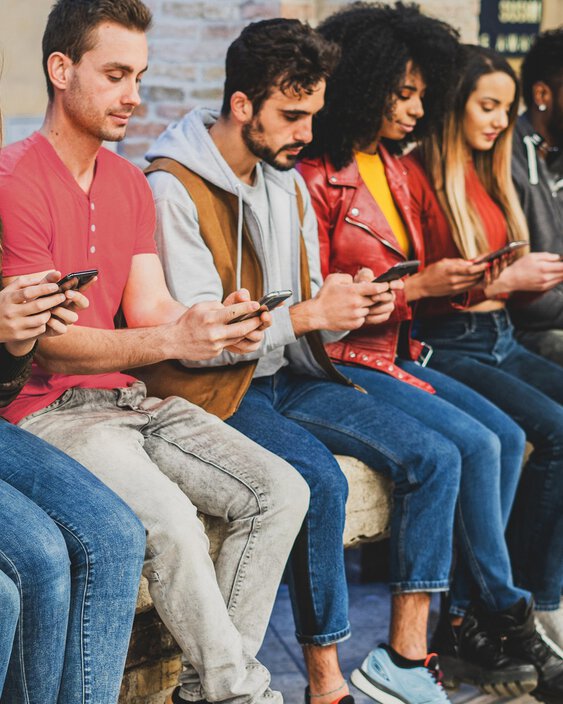
Social media
Social media has a significant impact on daily life, health and well-being, politics and society.
Loading ...
The term "social media" is used to describe a multitude of digitally mediated technologies and platforms that facilitate the creation and exchange of information and ideas in a dialogic way. Distinct features of social media include the high reach, frequency of interactions, usability, immediacy and oftentimes permanence. Main types of social media are blogs, business networks, collaborative projects, enterprise social networking, forums, photo and video sharing, products/services review, social bookmarking, social gaming, and social networks.
The most popular social networking services each have more than 1 billion registered users. Recent data shows that there are currenty about 5.1 billion social media users around the world, equating to about 63% of the total global population. The typical user has an account on more than eight different social media platforms, and spends an average of close to 2½ hours using social media each day. This is up from 90 minutes in 2012, which represents an increase of 60%.
Social media has a significant impact on daily life, health and well-being, politics and society. All these areas of life can be influenced positively and negatively.
The use of social media can create psychological and behavioural dependence, which can significantly affect health, but also all areas of daily life. Most often, anxiety and depression are the symptoms associated with problematic social media use. This and other relationships between social media use and mental health have been extensively researched and discussed among experts in several disciplines, and have generated controversy in medical, scientific, and technological communities.
The influence of social media on society is also multi-layered. They give us the opportunity to stay in touch with those who live far away. Social media lets us share funny, interesting and important content. They give businesses a new way to connect with customers. However, one of the problems is that anyone can share anything, including content that may not be accurate, and in some cases cause real harm as a result. The spread of unverified or inflammatory content can harm private individuals, such as when someone is bullied online. It can also have harmful effects on societies and political systems as a whole.
The exact influence of social media on the (re)insurance business is not always clear-cut. There may be an overlap with other effects, but these are amplified by social media. The emergence and major impact of social media on society has a number of implications for the insurance industry. Over the course of the last several years it could be seen and continues to be observed that social media amplifies:
- Existing and emerging narratives within social groups and across the whole society
- Visibility of social, ethical, environmental, and political issues
- Willingness and ability of people to spontaneously connect for social protest
- Corporate risks associated with public opinion
- Interaction between organisations and individuals
With the right to a trial by jury being a fundamental principle of the US legal system, there are implications that are often referred to in the context of "social inflation". In essence, with social media playing an important role in the creation of public opinion, this translates into increased loss frequency and loss severity especially in the context of the US legal system. In addition to these overarching implications, there are also points of concern pertaining to individual lines of business. Due to the widespread use and influence of social media in the US, it is to be expected that developments observed here will also become apparent in other markets.
In particular, for the primary insurance industry some aspects might be of relevance for future business:
- Social media will probably be a powerful distribution and marketing tool to sell insurance, especially for private lines. Target groups can be specifically addressed.
- Social media can be used to combat fraud. This last one will probably not have a major impact on the bottom lines, but might be an additional anti-fraud tool.